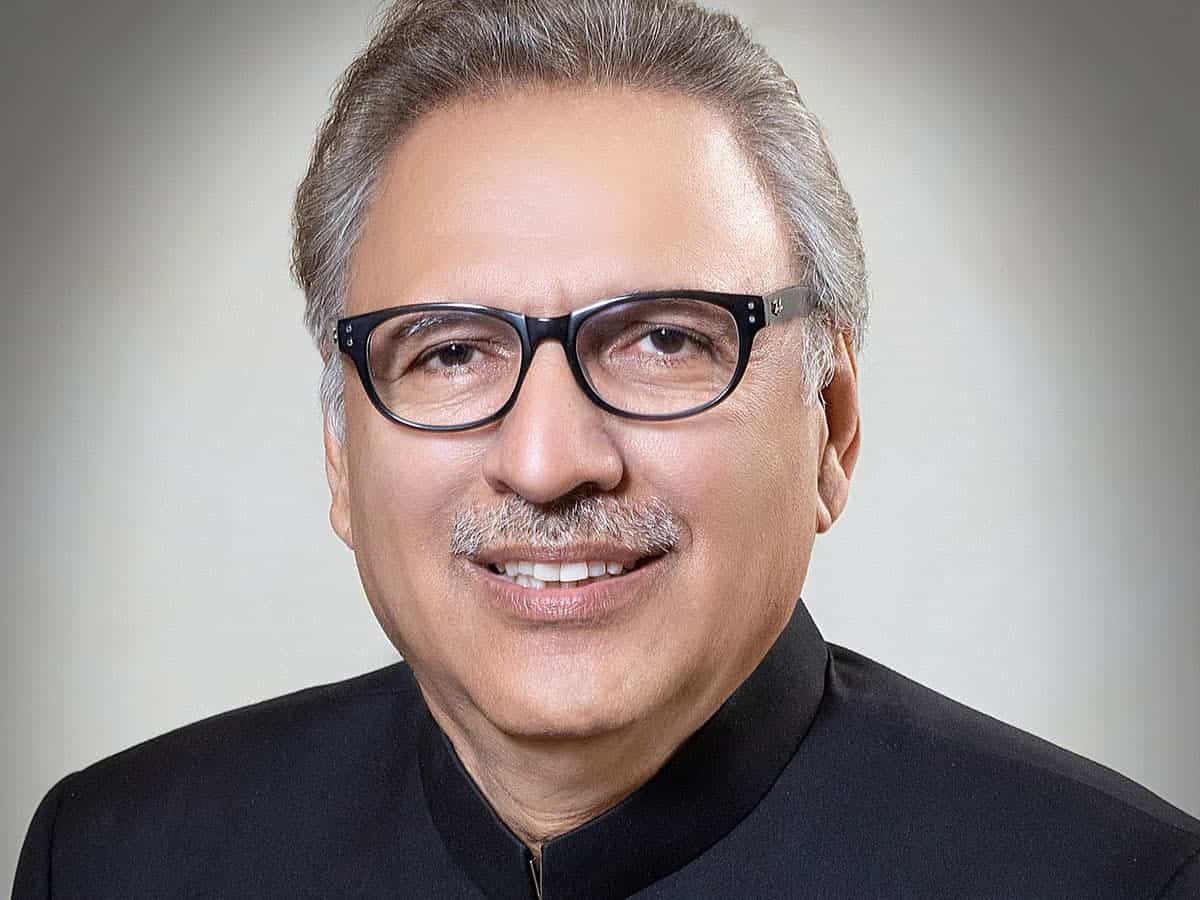
Islamabad: Pakistan President Arif Alvi has dissolved the National Assembly on the advice of Prime Minister Imran Khan on Sunday.
Prime Minister Khan, who had effectively lost majority in the 342-member National Assembly, made a brief address to the nation after a stormy parliament session was adjourned by Deputy Speaker Qasim Suri.
Imran Khan had said on Sunday that he has advised President Arif Alvi to dissolve the National Assembly and call for fresh elections, minutes after the deputy speaker rejected a no-confidence motion against the embattled leader.
Khan congratulated the nation for the no-trust motion being dismissed, saying the deputy speaker had “rejected the attempt of changing the regime [and] the foreign conspiracy”.
“The nation should prepare for the new elections,” he said, adding that the no-confidence was actually a “foreign agenda”.
Khan said he has advised President Alvi to dissolve assemblies.
“Prepare for elections. No corrupt forces will decide what the future of the country will be. When the assemblies will be dissolved, the procedure for the next elections and the caretaker government will begin,” the 69-year-old cricketer-turned-politician said.
Earlier, Deputy Speaker Suri dismissed the no-confidence motion moved by the Opposition against Prime Minister Khan, terming it against the Constitution and rules of Pakistan.
“The no-confidence should be according to the Constitution of and rules of the country. Since it is not as pointed out by the Law Minister, so I reject the no-confidence motion,” Suri ruled, amid vociferous protest by Opposition lawmakers.
Suri chaired the crucial session after Opposition parties filed a no-confidence motion against Speaker Asad Qaiser.
As the crucial session began, Law Minister Fawad Chaudhry said that it has been established that through a “letter” that the on-confidence motion was being used to bring a regime change on the behest of a foreign power, so it was against Article 5 of the constitution of Pakistan.
“It is an effective operation for a regime change by a foreign power. It is not an issue of no-confidence but Article 5,” he said and urged the chair to give ruling on the legality of the no-confidence move.
Consequently, Deputy Speaker Suri issued his ruling, rejecting the no-confidence motion and adjourning the session.
No Pakistani prime minister has ever completed a full five-year term in office.
The opposition announced to challenge the ruling of the speaker and advise to dissolve the assembly in the Supreme Court.
“We are going to challenge the ruling by the deputy speaker and advice by the prime minister to dissolve parliament in the Supreme Court, said Shehbaz Sharif, Leader of the Opposition in the parliament.
Mustafa Nawaz Khokhar, a Pakistan Peoples Party leader, said that the opposition would hold a sit-in protest inside the parliament and would not leave its premises.
“What Imran Khan has done is against the laws. We’re approaching our layers. The speaker has also done an undemocratic work. Imran Khan has exposed himself through this move. We will be present inside the National Assembly until this decision is reversed. He is fleeing against the no-trust motion seeing defeat,” Pakistan Peoples Party Chairman Bilawal Bhutto Zardari said.
“Our lawyers are on their way to Supreme Court. We call on ALL institutions to protect, uphold, defend & implement the constitution of Pakistan,” he later tweeted.
Pakistan Muslim League-Nawaz leader Marriyum Aurangzeb said: “Imran Khan is a traitor (gaddar). He has taken an unconstitutional step and we are now protesting in National Assembly and will not go anywhere until this decision is cancelled”.
Leading constitutional lawyer Salman Akram Raja said that the entire procure by the deputy speaker and the advice by the premier to dissolve the assembly was unconstitutional .
He said that the Supreme Court would decide the entire controversy. “The basic issue is determining the legality of the ruling by the deputy speaker. If the top court says that the ruling is according to laws, then the advice by the prime minister will also be as per law, he said.
Raja said the illegality of the ruling would also make the advice as illegal as the prime minister cannot give advice to the assembly after a no-confidence motion was presented in the parliament against him.
Ahsan Bhoon, President Supreme Court Bar, said that the action of the prime minister and deputy speaker was against the constitution and they should be prosecuted for treason under Article 6 of the constitution.”
He appealed to the chief justice to take a suo moto action against the gross illegality.
Earlier, Chaudhry said that a Pakistani ambassador in a meeting with the officials of a foreign country on March 7 was told that Pakistan’s government should be changed through a no-confidence motion.
He said a day later on March 8, the no-confidence motion was presented.
The combined opposition filed the no-confidence motion on March 8, setting a set of events leading to the day of voting and rise in the tension due to Khan’s insistence that he was being targeted by a foreign conspiracy with the collaboration of top opposition leaders.
Security around the Red Zone housing the Parliament building was beefed through deployment of more than 6,000 security personnel of police and paramilitary forces, including Pakistan Rangers and Frontier Corps.
Local administration has imposed Section 144 in Islamabad. The Red Zone has been sealed with big containers and barbed wires and with tightened security in the capital.
This copy was edited with inputs from the newsdesk.



